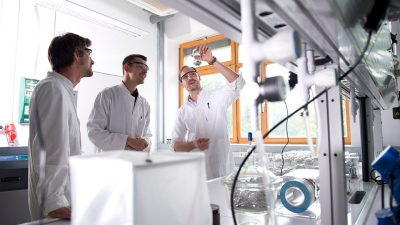Page path:
- Home
- Discover
- Media Releases
- Media Releases 2017
- Survival on snowball earth
Survival on snowball earth
Hoshino, A. Poshibaeva, W. Meredith, C. Snape, V. Poshibaev, G.J.M. Versteegh, N. Kuznetsov, A. Leider, L. van Maldegem, M. Neumann, S. Naeher, M. Moczydłowska, J.J. Brocks, A.J.M. Jarrett, Q. Tang, S. Xiao, D. McKirdy, S. Das, J. Alvaro, P. Sansjofre, C. Hallmann: Cryogenian evolution of stigmasteroid biosynthesis, Science Advances online, 20 September, 2017; DOI: 10.1126/sciadv.1700887



